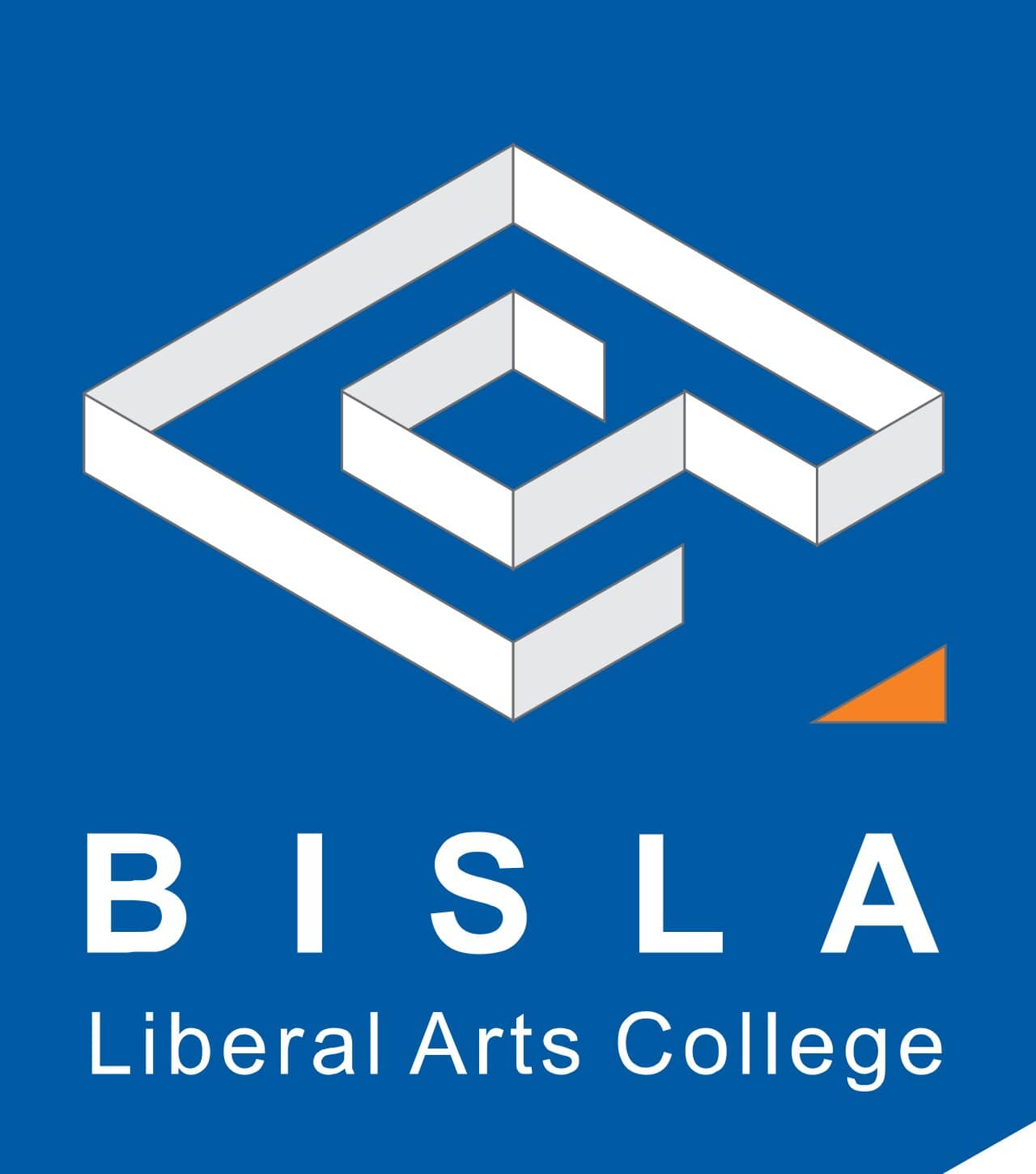BISLA courses 2022 (core and electives)
LIST OF COURSES FOR FALL 2022
- Academic Writing (1st year; Lindbloon)
- Introduction to Social Science Research Methods (1st year; Kusá)
- Introduction to Philosophy (1st year; Novosád)
- Introduction to Political Science (1st year; Abrahám)
- Introduction to International Relations (2nd year; Tabosa)
- Comparative Politics (2nd year; Kusá)
- Western Civilization: The Ancient World (2nd year; Stewart)
- Introduction to Political Philosophy: From Plato to Marx (2nd year; Balazs)
- Introduction to Modern China (3rd year; Thomson)
- Social Policy (3rd year; Radičová)
- Bachelor Thesis Seminar (3rd year; Kusá)
- Contemporary Political Philosophy (3rd year; Balazs)
- Vedomie a Realita (elective; Gál)
- Global Transformation (elective; Sprouse)
- Human Rights (elective; Tiryaki)
- Economic Policy (elective; Hudcovský)
- The Crisis of the Individual and Society in Fin-de-siècle Culture (elective, Stewart)
- Vyberané problémy dejín výtvarného a vizuálneho umenia (elective; Barczi)
- Introduction to Psychology (elective; Bakoš)
Academic Writing (1st year; Lindbloon)
This compulsory first-year writing course aims to prepare students for the study requirements in their other courses. Academic writing is a set of practices for participating in a conversation with others. Through frequent practice and study of writing, W-114 introduces students to the conventions of this conversation.
Introduction to Social Science Research Methods (1st year; Kusá)
This course will walk students through the initial stages of an academic research project—from pondering a suitable topic, through deciding on a suitable methodology and techniques of data acquisition and interpretation, towards a completion of a thorough research proposal. Along the way, we will go through the basic approaches in scientific inquiry, learn to evaluate and search for academic sources in libraries and online, format and reference papers using automated functions in MS Word, and of testing the waters of practical research by designing and carrying out a simple survey or interviews.
Introduction to Philosophy (1st year; Novosád)
This course will introduce you to the major problems and methods of philosophy with accent on anthropology and theory of culture. Philosophy is on one side about asking /as if for the first time/ “big questions” concerning our Being-in-the-World. On the other side it requires familiarity with intricate variety of basic concepts developed through the major thinkers in world history.
Introduction to Polical Science (1st year; Abrahám)
Historically, political science has been plagued by disagreements over the purposes it serves, the basic questions it should be addressing, and the methods of analysis by which we gain knowledge of politics. Introduction to Political Science should begin to teach students to organize and connect factual information by using their analytical abilities to think critically about politics. In this course, students should learn about the basic nature of political science and the connections between the sub-divisions of the field. The course will introduce students to the basic concepts, institutions, and processes of politics. It will also provide the conceptual meaning and concrete information needed in order to understand and cope with the political events and governmental actions that affect every individual. The beginning of the course will be devoted to the concept of “Liberal Education”.
Introduction to International Relations (2nd year; Tabosa)
The aim of the course is to introduce the students to the study of International Relations (IR). The students will be presented with the discipline’s historical origins, its purpose, its debates, as well as the basic theoretical approaches it has developed. Upon completing of the course students should be able to analytically apply the main theoretical approaches of IR to current affairs in world politics, and to conduct basic research in IR.
Comparative Politics (2nd year; Kusá)
This is an intermediate level course on comparative politics. It offers an overview of major approaches towards studying the institutions, processes, actors, behavior, structures, and cultures of the countries of the world. It is necessarily a selective course and does not intend to cover all of the themes in comparative politics. The focus of this semester is on the development and the state of democracy through the prism of the main approaches in comparative politics since 1950s to the present day.
Western Civilization: The Ancient World (2nd year; Stewart)
This course will provide an overview of Western culture in antiquity. Through an examination of key texts, it will examine the cultures of Mesopotamia, Israel, Greece, Rome, and the rise of Christianity. We will explore some of the fundamental questions that have confronted human beings since the beginning of time: What is the good life? What is it to be human? What is the value of knowledge? What is the meaning of life? What happens after death? What is justice? What is the best form of government? What is the meaning of love? We will explore how the different cultures had different answers to these questions and how these answers developed over time. We will have an eye towards how the ancient ideas about these issues are still relevant for our modern intuitions.
Introduction to Political Philosophy: From Plato to Marx (2nd year; Balazs)
Here, we will read ancient Greek and Roman philosophy as well as touch on medieval philosophy with a focus on the political aspects of that thought. The thread that will be followed throughout all these readings, then, is the relationship between reason and power. That is, whether power depends on reason, whether reason should advise power, how reason should advise power if it can, and so on.
Introduction to Modern China (3rd year; Thomson)
This course will provide students with a framework to understand China’s history, geography, politics, economy, and its contemporary regional and global influence. Participants will learn about China’s culture and recent history, its relations with neighbouring countries and territories, sources of internal and external conflict, the modern state’s attitude to human rights, and the country’s economic strengths and weaknesses. Students will work with primary and secondary historical sources in English, as well as more recent journalism. They will be expected to master the basic chronology of events in modern China. The aim of the course will be to give students a nuanced understanding of modern China, and provide some historical context for the contemporary political and philosophical writings that they may be asked to study in other courses at BISLA. Lectures, seminars and discussions, informed by preparatory reading, will form the core method of learning, accompanied by essays and presentations by students.
Social Policy (3rd year; Radičová)
Oboznámenie sa so sociálnou politikou – jej históriou, základnými modelmi, formami, teoretickými koncepciami a schopnosť aplikovania teoretických poznatkov na vybraných prípadoch a na Slovensko. Študenti porozumejú a budú schopní hodnotiť “Európsky” model sociálnej politiky, medzinárodné dokumenty a normy v oblasti sociálnych práv a potrebné oblasti dynamických zmien.
Bachelor Thesis Seminar (3rd year; Kusá)
This course is a workshop. We will begin each class with a short discussion on what part of your thesis proposal you will be working on followed by a work session. There will also be student presentations with Q&A, to help you prepare for the real thing.
Contemporary Political Philosophy (3rd year; Balazs)
Here we survey some of the important moments and texts in Western political thought from the nineteenth, twentieth, and our own centuries. While these texts are in many ways too diverse to find a specific or particular theme, several will appear in multifarious ways over the course of the term. Such themes will include but not be limited to who or what constitutes a free person, or a person in general, and how; in what way or for what reasons we might understand ourselves or others to be free, or not; and how to engage the other in an ethicopolitical context.
Vedomie a Realita (elective; Gál)
Výraz kultúrne zaostávanie použili kultúrni antropológovia začiatkom dvadsiateho storočia na charakterizovanie ťaživej situácie archaických spoločností vystavených vonkajšiemu tlaku modernizácie. Morálne zaostávanie je výraz, ktorým by sa mohol charakterizovať rastúci rozpor medzi vonkajšími podmienkami (materiálnymi, ekonomickými a politickými), ktorým sú ľudia vplyvom globalizácie a digitálnych technológií vystavení a vnútorným nastavením (morálnym a emocionálnym) ľudských myslí. Dôsledkom je polarizácia spoločnosti, znehodnocovanie sociálneho kapitálu, nedôvera a návrat kmeňových mentalít. Jednou z možností, ako porozumieť situácii v ktorej sa nachádzame je, vytvoriť si primeranú predstavu o evolučných a civilizačných aspektoch ľudskej prirodzenosti.
Global Transformation (elective; Sprouse)
This course will begin with looking at the development and impact of the Enlightenment as it shaped intellectual thought and created changes contemporary thinkers could only have dreamed of. As European nations competed for global domination, empires rose and fell, and supporters of Enlightenment ideals challenged the status quo. Independence movements sprung up and successful revolutions in North America, Latin America, and Europe forever changed the notion of sovereignty and citizenship. The Industrial Revolution further transformed Europe and the United States into modern, urban, manufacturing states. These transformations are best viewed from a global perspective, considering the “West’s” interaction with various empires throughout Asia and Africa. Before our course ends, modern nations like Italy and Germany come into existence, the Habsburgs and Romanovs are forced to deal with various uprisings, and imperialism leads the world to the brink of world war.
Human Rights (elective; Tiryaki)
This basic course on human rights aims to provide students with an understanding of what the human rights are and their importance in today’s world. To this end, we look at the historical origins, doctrine, how they are formed in law, institutional structure of the movement and the challenges to its foundations. To see the ‘big picture’ students are encouraged to think critically about the human rights as a whole. The course acquaints students with the contemporary issues ranging from torture and arbitrary detention to rights of refugees and access to health.
Economic Policy (elective; Hudcovský)
Understanding basic economic concepts, terms, and links among them.
The Crisis of the Individual and Society in Fin-de-siècle Culture (elective, Stewart)
In this class, we will explore. different aspects of this special period of Western civilization: We will examine the historical and social context of these changes. The readings will come from famous authors and thinkers such as Friedrich Nietzsche, Sigmund Freud, Rainer Maria Rilke, Oscar Wilde, Virginia Woolf, and Franz Kafka. Moreover, we will explore the fine arts of this period since art was one of the most important forms of expression of this special Zeitgeist. This class will thus be interdisciplinary, concerning topics relevant for literature, philosophy, history, psychology, art history, and aesthetics.
Vyberané problémy dejín výtvarného a vizuálneho umenia (elective; Barczi)
Kurz predstaví najdôležitejšie míľniky v dejinách umenia, ktoré zásadne ovplyvnili podobu i spôsoby prezentácie (uchovávania) umeleckých diel ako dôležitej súčasti procesu formovania kultúry a identity (v širšom a užšom význame). Zvláštna pozornosť bude venovaná stredoeurópskemu priestoru, ktorého umenie a kultúra odzrkadľujú špecifické podmienky formovania umeleckej prevádzky a diskurzu. Súčasťou kurzu budú aj tzv. kritické návštevy fondových inštitúcií a výstav – ich výsledkom bude posilniť „návštevnícke“ sebavedomie budúcich aktívnych ich i pasívnych aktérov kultúrnej scény.
Introduction to Psychology (elective; Bakoš)
The goal of this course is to experience and understand one’s internal world as well as the external world more creatively. We will study the development and functioning of a human mind and walk through the basic social psychology theories.

